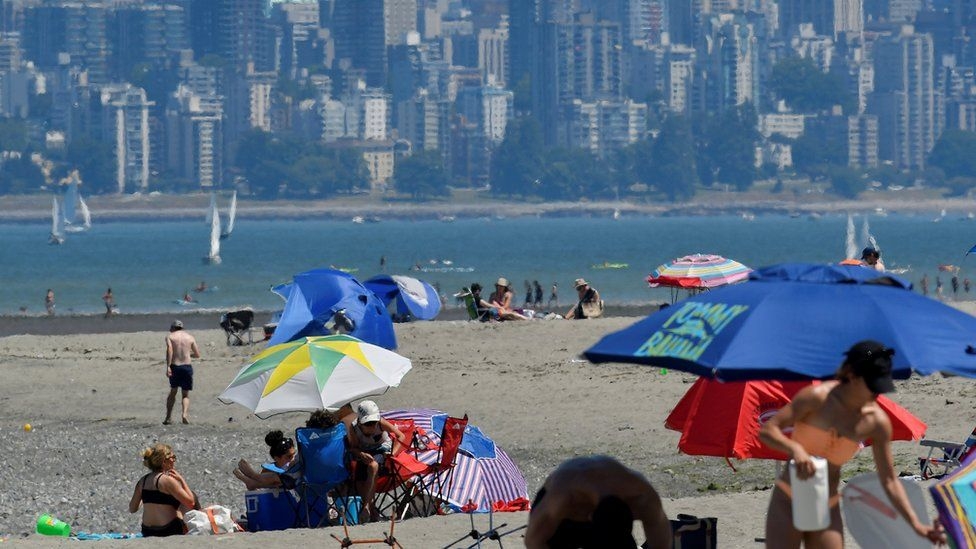Dozens dead amid historic Canada heatwave

Dozens of people have died in Canada amid an unprecedented heatwave that has smashed temperature records.
Police in British Columbia have responded to almost 70 sudden deaths since Monday, the majority of them involving elderly people.
They said the heatwave baking the region was a contributing factor.
On Tuesday, Canada recorded its highest ever temperature for a third straight day - 49.5C (121F) in Lytton, British Columbia.
Before this week, temperatures in Canada had never passed 45C.
"Check on your neighbors, check on family members, check on seniors you may know," Canadian Police Cpl Mike Kalanj, who is based in the Vancouver suburb of Burnaby, said on Tuesday.
"This weather can be deadly for vulnerable members of our community, especially the elderly and those with underlying health issues," he added. "It is imperative we check on them."
According to the police, the heat is believed to have been a contributing factor in the deaths of 69 people in the Vancouver suburbs of Burnaby and Surrey. Most were elderly or had underlying health conditions.
In the tiny village of Lytton, resident Meghan Fandrich told the Globe & Mail it had been "almost impossible" to go outside.
"It has been intolerable," she said, adding that she sent her young daughter to stay with family elsewhere in British Columbia where temperatures are marginally cooler.
"We're trying to stay indoors as much as possible. We are used to the heat, and it is a dry heat, but 30 [degrees] is a lot different from 47."
Environment Canada has issued heat warnings for the provinces of British Columbia and Alberta, along with areas of Saskatchewan, the Northwest Territories and a section of Yukon.
"We are the second coldest country in the world and the snowiest," said David Phillips, a senior climatologist for Environment Canada.
"We often see cold snaps and blizzards but not often do we talk about hot weather like this," he said. "Dubai would be cooler than what we're seeing now."
